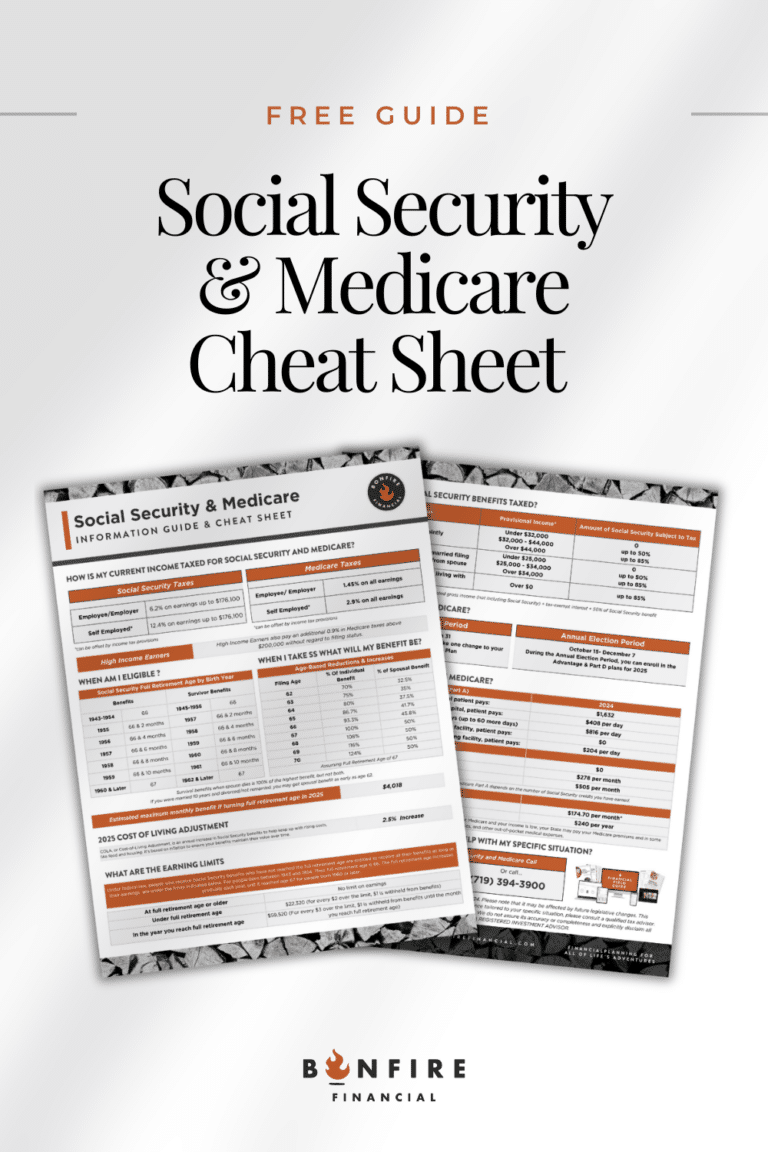Healthcare in Retirement
When people dream about retirement, they often picture traveling the world, spending more time with family, or picking up long-forgotten hobbies. What they don’t envision is the growing cost of healthcare and how it can quickly derail even the best-laid retirement plans. The reality is that Medicare doesn’t cover everything, and medical expenses tend to increase as we age. It is a common mistake to overlook medical costs in retirement. Without proper planning, these costs can become a major burden, potentially draining your savings and limiting your retirement lifestyle.
Today we’ll explore the key aspects of healthcare planning in retirement, including Medicare basics, long-term care, and smart strategies to manage medical expenses so you can enjoy your golden years with peace of mind.
Listen anywhere you stream Podcasts
iTunes | Spotify | iHeartRadio | Amazon Music
__
The Real Cost of Healthcare in Retirement
One of the biggest financial shocks retirees face is just how much they will spend on healthcare. A study from Fidelity estimates that a 65-year-old couple retiring today will need approximately $315,000 for healthcare costs throughout retirement. This number doesn’t even include long-term care expenses, which can be astronomical. Without a plan in place, these costs can quickly eat into your retirement savings, leaving you financially vulnerable.
Healthcare costs increase due to several factors:
- Aging-related conditions – The older we get, the more medical care we need.
- Rising healthcare inflation – Medical costs tend to increase faster than general inflation.
- Gaps in Medicare coverage – Medicare is helpful but doesn’t cover everything, leaving retirees to cover additional costs out of pocket.
So, how can you prepare for these expenses? Let’s start with the foundation of retirement healthcare: Medicare.
Understanding Medicare: What It Covers and What It Doesn’t
Medicare is a federal health insurance program primarily for people aged 65 and older. While it provides essential coverage, it doesn’t pay for all healthcare expenses. Here’s a quick breakdown of the different parts of Medicare:
- Medicare Part A (Hospital Insurance): Covers inpatient hospital stays, skilled nursing facility care, hospice care, and some home health care. Most people do not pay a premium for Part A.
- Medicare Part B (Medical Insurance): Covers outpatient care, doctor visits, preventive services, and some home health care. There is a monthly premium for Part B.
- Medicare Part D (Prescription Drug Coverage): Helps cover the cost of prescription drugs. Private insurance companies offer Part D plans.
- Medicare Advantage (Part C): A private insurance alternative to traditional Medicare that often includes additional benefits like vision, dental, and hearing coverage.
While Medicare provides significant coverage, there are gaps, such as:
- No coverage for long-term care – Nursing home stays or in-home caregiving are not covered under Medicare.
- High out-of-pocket costs – Deductibles, copays, and coinsurance can add up quickly.
- Limited dental, vision, and hearing coverage – Medicare does not cover most dental work, eye exams for glasses, or hearing aids.
The Hidden Costs of Medicare
Many retirees are surprised to learn that Medicare costs aren’t one-size-fits-all. If you have a higher retirement income, you could end up paying more for your Medicare premiums. Medicare uses a two-year lookback period to determine your Income-Related Monthly Adjustment Amount (IRMAA), which increases premiums for those with higher incomes.
Additionally, Medicare does not cover everything. Some of the biggest out-of-pocket expenses for retirees include:
- Medicare Part B and D premiums – These increase if your income is above a certain threshold.
- Medicare supplement insurance (Medigap) – Helps cover out-of-pocket costs but comes at an additional monthly premium.
- Long-term care costs – Not covered by Medicare and can be financially devastating.
- Prescription drugs – Depending on your medication needs, costs can vary significantly.
How to Plan for Healthcare Costs in Retirement
To avoid healthcare expenses derailing your retirement, it’s crucial to plan ahead. Here are some strategies to ensure you’re financially prepared:
1. Estimate Your Future Healthcare Costs
Understanding what you might spend on healthcare can help you plan accordingly. Consider your current health, family medical history, and potential long-term care needs when estimating costs.
2. Take Advantage of a Health Savings Account (HSA)
If you’re still working and have access to a Health Savings Account (HSA), it’s one of the best tools for saving for healthcare expenses in retirement. HSAs offer triple tax advantages:
- Contributions are tax-deductible.
- Growth is tax-free.
- Withdrawals for qualified medical expenses are tax-free.
HSAs benefits can be a powerful way to accumulate tax-free savings to cover future healthcare costs.
3. Consider a Medicare Supplement Plan (Medigap)
Since Medicare doesn’t cover everything, many retirees opt for a Medigap policy to help cover additional expenses like copayments, deductibles, and coinsurance. There are multiple plan options, so working with a financial advisor to select the right coverage is key.
4. Plan for Long-Term Care
One of the most significant and often overlooked retirement expenses is long-term care. Whether it’s assisted living, home care, or a nursing home, these services are expensive and not covered by Medicare. Some ways to prepare include:
- Long-term care insurance – Policies help cover extended care costs but can be expensive.
- Hybrid life insurance policies – Some life insurance plans offer long-term care benefits if needed.
- Self-funding – If you have significant assets, you may choose to set aside money specifically for long-term care.
5. Optimize Your Retirement Income to Manage Medicare Costs
Since Medicare premiums are income-based, being strategic about your retirement income can help reduce costs. Consider:
- Using Roth IRAs or HSAs to withdraw tax-free income.
- Strategizing Social Security withdrawals to avoid pushing your income into a higher premium bracket.
- Working with a CERTIFIED FINANCIAL PLANNER™, like us, to minimize tax liability in retirement.
Get Your Free Social Security & Medicare Guide
Planning for healthcare in retirement can feel overwhelming, but you don’t have to navigate it alone. We’ve created a free, comprehensive Social Security & Medicare Guide which is updated annually to help you understand your benefits, avoid costly mistakes, and make informed decisions about your healthcare coverage.
Final Thoughts: A Proactive Approach Pays Off
Healthcare is one of the most significant financial considerations in retirement. Without a plan, it can quickly drain your savings and force difficult financial decisions. By understanding Medicare, estimating costs, and implementing strategies like HSAs and long-term care planning, you can protect your retirement savings and enjoy the retirement you’ve always envisioned.
The key takeaway? Plan for it, plan for it, plan for it. The best time to prepare for healthcare costs in retirement is before you need them. Don’t let medical expenses catch you off guard—take action today.
If you’re looking for personalized guidance on planning for healthcare costs in retirement, we are here and happy to help. Schedule a complimentary call with us today.
 Client Login
Client Login







